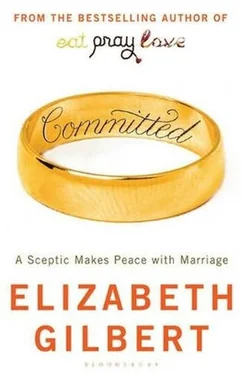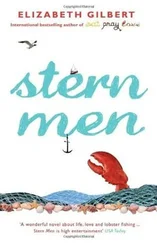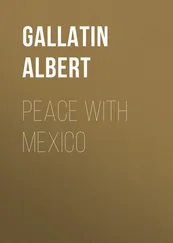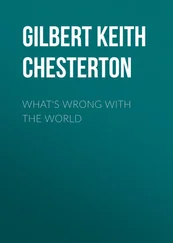“Is your man a good husband?” I asked.
The old woman had to ask her granddaughter to repeat the question several times, just to make sure she’d heard it correctly: Is he a good husband? Then she gave me a bemused look, as though I’d asked, “These stones which compose the mountains in which you live-are they good stones?”
The best answer she could come up with was this: Her husband was neither a good husband nor a bad husband. He was just a husband. He was the way that husbands are. As she spoke about him, it was as though the word “husband” connoted a job description, or even a species, far more than it represented any particularly cherished or frustrating individual. The role of “husband” was simple enough, involving as it did a set of tasks that her man had obviously fulfilled to a satisfactory degree throughout their life together-as did most other women’s husbands, she suggested, unless you were unlucky and got yourself a real dud. The grandmother even went so far as to say that it is not so important, in the end, which man a woman marries. With rare exceptions, one man is pretty much the same as another.
“What do you mean by that?” I asked.
“All men and all women are mostly the same, most of the time,” she clarified. “Everybody knows that this is true.”
The other Hmong ladies all nodded in agreement.
May I pause here for a moment to make a blunt and perhaps perfectly obvious point?
It is too late for me to be Hmong.
For heaven’s sake, it’s probably even too late for me to be a Webster.
I was born into a late-twentieth-century American middle-class family. Like untold millions of other people in the contemporary world born into similar circumstances, I was raised to believe that I was special. My parents (who were neither hippies nor radicals; who in fact voted for Ronald Reagan twice) simply believed that their children had particular gifts and dreams that set them apart from other people’s children. My “me-ness” was always prized, and was moreover recognized as being different from my sister’s “her-ness,” my friends’ “them-ness,” and everyone else’s “everyone-else-ness.” Though I was certainly not spoiled, my parents believed that my personal happiness was of some importance, and that I should learn to shape my life’s journey in such a way that would support and reflect my individual search for contentment.
I must add here that all my friends and relatives were raised with varying degrees of this same belief. With the possible exception of the very most conservative families among us, or the very most recently immigrated families among us, everyone I knew-at some basic level- shared this assumed cultural respect for the individual. Whatever our religion, whatever our economic class, we all at least somewhat embraced the same dogma, which I would describe as being very historically recent and very definitely Western and which can effectively be summed up as: “You matter.”
I don’t mean to imply that the Hmong don’t believe their children matter; on the contrary, they are famous in anthropological circles for building some of the world’s most exceptionally loving families. But this was clearly not a society that worshiped at the Altar of Individual Choice. As in most traditional societies, Hmong family dogma might effectively be summed up not as “You matter” but as “Your role matters.” For, as everyone in this village seemed to know, there are tasks at hand in life-some tasks that men must do and some tasks that women must do-and everyone must contribute to the best of his or her abilities. If you perform your tasks reasonably well, you can go to sleep at night knowing that you are a good man or a good woman, and you need not expect much more out of life or out of relationships than that.
Meeting the Hmong women that day in Vietnam reminded me of an old adage: “Plant an expectation; reap a disappointment.” My friend the Hmong grandmother had never been taught to expect that her husband’s job was to make her abundantly happy. She had never been taught to expect that her task on earth was to become abundantly happy in the first place. Never having tasted such expectations to begin with, she had reaped no particular disenchantment from her marriage. Her marriage fulfilled its role, performed its necessary social task, became merely what it was, and that was fine.
By contrast, I had always been taught that the pursuit of happiness was my natural (even national) birthright. It is the emotional trademark of my culture to seek happiness. Not just any kind of happiness, either, but profound happiness, even soaring happiness. And what could possibly bring a person more soaring happiness than romantic love? I, for one, had always been taught by my culture that marriage ought to be a fertile greenhouse in which romantic love can abundantly flourish. Inside the somewhat rickety greenhouse of my first marriage, then, I had planted row after row of grand expectations. I was a veritable Johnny Appleseed of grand expectations, and all I reaped for my trouble was a harvest of bitter fruit.
One gets the feeling that if I’d tried to explain all that to the Hmong grandmother, she would have had no idea what the hell I was talking about. She probably would have responded exactly the way an old woman I once met in southern Italy responded, when I confessed to her that I’d left my husband because the marriage made me unhappy.
“Who’s happy?” the Italian widow asked casually, and shrugged away the conversation forever.
Look, I don’t want to risk romanticizing the oh-so-simple life of the picturesque rural peasant here. Let me make it clear that I had no desire to trade lives with any of the women that I met in that Hmong village in Vietnam. For the dental implications alone, I do not want their lives. It would be farcical and insulting, besides, for me to try adopting their worldview. In fact, the inexorable march of industrial progress suggests that the Hmong will be more likely to start adopting my worldview in the years to come.
As a matter of fact, it’s already happening. Now that young girls like my twelve-year-old friend Mai are being exposed to modern Western women like me through crowds of tourists, they’re experiencing those first critical moments of cultural hesitation. I call this the “Wait-a-Minute Moment”-that pivotal instant when girls from traditional cultures start pondering what’s in it for them, exactly, to be getting married at the age of thirteen and starting to have babies not long after. They start wondering if they might prefer to make different choices for themselves, or any choices, for that matter. Once girls from closed societies start thinking such thoughts, all hell breaks loose. Mai-trilingual, bright, and observant-had already glimpsed another set of options for life. It wouldn’t be long before she was making demands of her own. In other words: It might be too late for even the Hmong to be Hmong anymore.
So, no, I’m not willing-or probably even able-to relinquish my life of individualistic yearnings, all of which are the birthright of my modernity. Like most human beings, once I’ve been shown the options, I will always opt for more choices for my life: expressive choices, individualistic choices, inscrutable and indefensible and sometimes risky choices, perhaps… but they will all be mine. In fact, the sheer number of choices that I’d already been offered in my life-an almost embarrassing cavalcade of options-would have made the eyes pop out of the head of my friend the Hmong grandmother. As a result of such personal freedoms, my life belongs to me and resembles me to an extent that would be unthinkable in the hills of northern Vietnam, even today. It’s almost as if I’m from an entirely new strain of woman (Homo limitlessness, you might call us). And while we of this brave new species do have possibilities that are vast and magnificent and almost infinite in scope, it’s important to remember that our choice-rich lives have the potential to breed their own brand of trouble. We are susceptible to emotional uncertainties and neuroses that are probably not very common among the Hmong, but that run rampant these days among my contemporaries in, say, Baltimore.
Читать дальше












